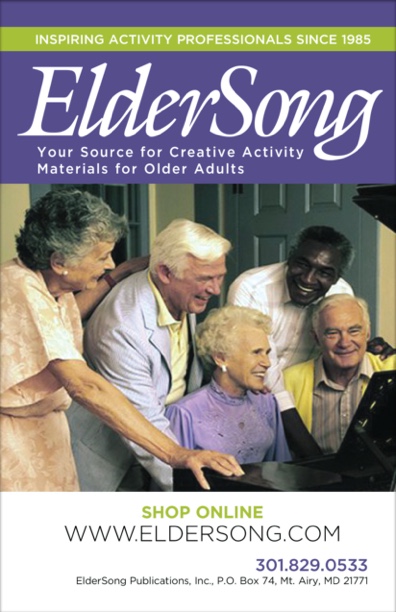If you grew up saying “please,” “thank you,” “yes, ma’am,” “no, sir,” and “excuse me,” chances are that someone in your family was a stickler for good manners! Grandma may have taught you basic manners that have stood the test of time, but in this age of cell phones, computers, and electronic devices, you may need to learn some new or updated ways to communicate properly. Manners are important for all people – young and old. The New Year is a good time for your group of senior adults to ponder a more modern version of “mind your manners.” The activities suggested below will help you get started.
- Discussion: Pass around copies of manners and etiquette books by authors such as Emily Post, Amy Vanderbilt, Judith “Miss Manners” Martin, Peggy Post, and Letitia Baldrige. Ask: Are good manners and proper etiquette old-fashioned and outdated in our society today? How and why have manners changed over the years? Why are they important in social and business situations?
- Discussion: Ask participants if they ever heard their parents or grandparents use the following sayings and talk about how they relate to good manners: mind your Ps and Qs, put your best foot forward, speak when you’re spoken to, don’t put your foot in your mouth, if you can’t say anything nice, don’t say anything at all, actions speak louder than words, first impressions count. Encourage group members to talk about where and how they learned old-fashioned manners (ex: home, school, youth organizations, church).
- Discussion: List words associated with good manners (ex: polite, respectful, courteous, considerate, gracious) and bad manners (ex: boorish, rude, insensitive, discourteous). Ask participants to name public behaviors that are especially bothersome to them (ex: talking loudly on a cell phone, swearing, cutting in line). Talk about the best way to deal with rude people.
- Discussion: Define the term “common courtesies.” Ask participants to name some courtesies that are expected at the following places/events: grocery store, movie theatre, school classroom, church worship service, department store, concert auditorium, subway, ballpark, airport, golf course. (Examples: grocery store – return shopping cart; movie theatre – turn off cell phone)
- Discussion: Ask participants if they agree with the following quotation by Fred Astaire: “The hardest job kids face today is learning good manners without seeing any.”
- Discussion: Discuss the meaning of the Golden Rule (found in the Bible in Matthew 7:12) and how to practice it in daily life.
- Discussion: Discuss the impact of social media (e-mail, instant messaging, tweeting) on communication today. Ask: Has the rise of technology caused good manners to decline? Do you prefer face-to-face talk, or would you rather use the Internet to communicate? Talk about the generational differences in the way we communicate today.
- Discussion: Highlight the contributions of Letitia Baldrige, social secretary to first lady Jacqueline Kennedy, who wrote memoirs and books on etiquette in modern America. Read some interesting nuggets (on family relationships, for instance) from one of her books, like Letitia Baldrige’s Manners for New Times: A Complete Guide to Etiquette.
- Activity: Watch some episodes of 1950s family sitcoms (Leave It to Beaver, The Donna Reed Show, Father Knows Best) and talk about how to raise polite, well-mannered children. Ask: What role should grandparents have in teaching good manners?
- Activity: Read some quotations on thankfulness and gratitude. Sing a few verses of “Thanks for the Memory.” Talk about occasions for writing thank-you notes. Help participants write a note of gratitude for a holiday gift or special event. Ask group members how they feel about the electronic version of thank-you notes. Do they expect handwritten notes from family members, like grandkids?
- Activity: Hold a vintage hat show (1930s-1950s) and talk about hat-wearing etiquette for men and women – where and when to wear hats, when to remove them, etc. Alternate: Watch the 1935 musical Top Hat with Fred Astaire and Ginger Rogers – great songs and dances. Chat about etiquette for formal attire – top hat and tails.
- Activity: Invite an etiquette coach/trainer to talk about manners in the workplace today (cell phone, Facebook, team work, punctuality, etc.). Ask group members what they remember about office dress codes and expected behavior.
- Reminiscing: Show photos of a 1950s family dinner table. Ask: Were you brought up eating dinners as a family? Who taught you proper table manners? Did you teach dinner table manners to your own children? Name some important manners at the table (ex: no elbows on table, chew with mouth closed, napkin on lap). How have table manners changed from the 1950s? For fun: Enlist a volunteer to demonstrate how to arrange a place setting for dinner.
- Intergenerational: Encourage the younger generation to model respect for elders. Invite tweens and teens to visit residents for an afternoon of activities – share childhood stories, listen to favorite music, demonstrate dance steps, read aloud poetry, play a board game.
- Music: Celebrate the birthday of Wolfgang Amadeus Mozart (b. January 27, 1756) with a festive party. (Beforehand: Talk about party etiquette tips for guests and hosts.) Decorate with lace tablecloths, silver trays with doilies, bone china cups. Play excerpts from a Mozart symphony, opera, chamber music. Invite an opera student to perform an aria. Serve tea and Viennese pastries. (For more Mozart party ideas, see the ElderSong resource Party Possibilities.)
MANNERS/ETIQUETTE QUIZ
- When you set the dinner table, which utensils are placed to the left of the dinner plate? Salad or dinner fork
- If you’re using a stairwell, on which side should you walk? Walk to the right
- What should you do when the national anthem is played? Stand up
- What does RSVP mean? Répondez s’il vous plaît, or please reply
- Calculate a generous 20% tip on a $50.00 dinner bill. $10.00
- What are bedside manners? How a doctor interacts with his or her patient
- How should you pass food at the dinner table? Dishes are passed to the right (counterclockwise).
- If you are unsure whether a young woman is married, what title should you use before her surname? Ms.
- What should you always write after a job interview? A thank-you note
- According to Southern manners, what should a gentleman do when a lady enters and leaves the room? Stand
THOUGHT FOR THE MONTH
“Life is not so short but that there is always time enough for courtesy.” ~ Ralph Waldo Emerson
“MIND YOUR MANNERS” written by Sue Hansen. © 2012 ElderSong Publications, Inc. All rights reserved.
Reprint Policy: To reprint or republish all or portions of this entry, you must acquire written permission and agree to link back to the original source. Please contact us at [email protected] to obtain permission.


